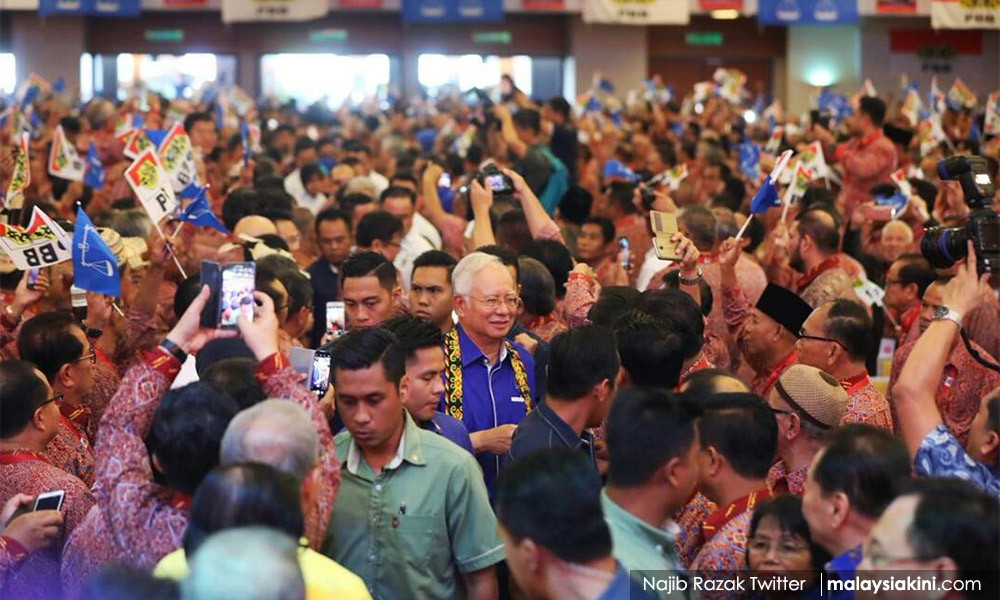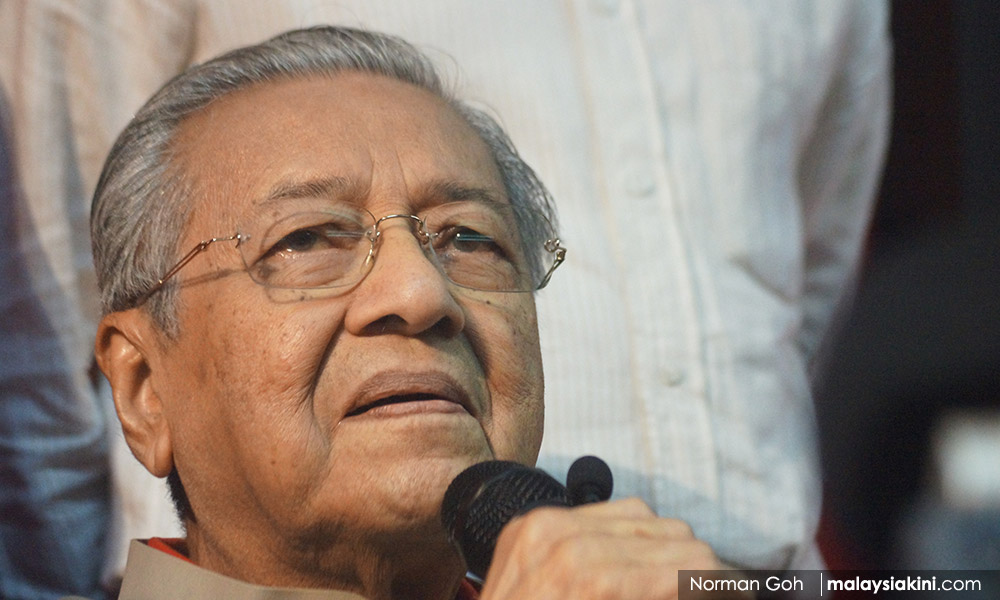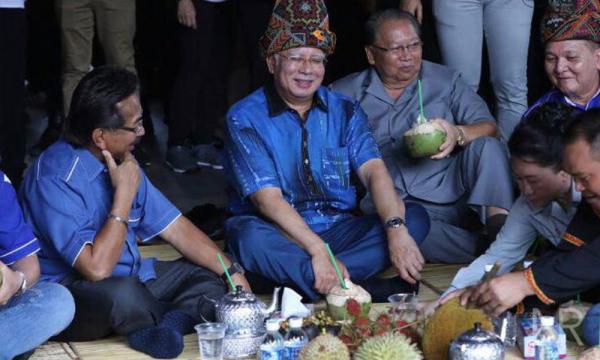The openness of Najib Abdul Razak in the face of current issues is an impetus for voters in Sabah and Sarawak to remain as BN’s safe deposit boxes in the 14th general election (GE14), local political analysts said.
They were of the opinion that the prime minister was willing to go down to Sabah and Sarawak as often as possible to explain and provide the latest status on current issues such as development, infrastructure, education and economy.
Universiti Malaysia Sarawak (Unimas) Faculty of Social Sciences senior lecturer Associate Professor Dr Jeniri Amir said that Sarawak voters, for example, were more concerned with issues related to their lives involving hand to mouth, children's school textbooks and government support than national issues such as the RM2.6 billion donation or 1Malaysia Development Berhad (1MDB) issue.

"Based on our findings, 60 percent of voters in Sarawak support the prime minister despite the numerous allegations coming from issues in Peninsular Malaysia. To me, this is surprising.
"In fact, they also support the prime minister following his commitment to go down to the field 59 times in 126 different locations since 2008.
"In fact, the government's ability to fulfill its promise like the 1Malaysia People's Aid (BR1M) aid has also become a powerful and phenomenal weapon in winning the hearts of the people of Sarawak," he said during a roundtable discussion on "Sabah and Sarawak in the GE14: Between Politics of Development and Political Change" today.
The one-day session was organised by the National Professors Council, Politics, Security and International Affairs Cluster, which discussed a wide range of local political issues and participated by various political experts and political analysts.
In sync with him, Unimas social sciences faculty senior lecturer Dr Arnold Puyok, described Najib as preferred over former Prime Minister Dr Mahathir Mohamad because of his concern towards Sabah and Sarawak issues.

"Tun M is well-known for not taking into account power-sharing and autonomous rights when he was prime minister.
"This is a far cry from Najib who is seen to hear and agree with the requests from the Sabah and Sarawak leaders regarding the Malaysia Agreement 1963," he said.
Meanwhile, National Professors Council, political, security and international affairs Cluster deputy chief, Prof Dr Jayum Jawan said the majority of Sabah and Sarawak voters wanted to remain with BN instead of putting uncertain choices in the hands of the opposition.
Obviously, this was because the voters in Sabah and Sarawak were not easily affected by the opposition propaganda and ammunition on the government's alleged inability to champion development and local issues.
Meanwhile, Universiti Malaysia Sabah (UMS), Humanities, Arts and Heritage Faculty senior lecturer Dr Zaini Othman said the aspects of development politics and political change were intertwined and important to ensure the continuance of Umno and BN in Sabah.
He drew attention that if there was a storm in the teacup, political stability in Sabah and Sarawak would be shaky as well as giving space and opportunity to the opposition to spring a surprise in GE14.
"So Umno and BN leaders need to look at the areas that can be improved in reaching out to voters especially the young intellectuals who will often question the credibility of the leaders picked," he added.
- Bernama


